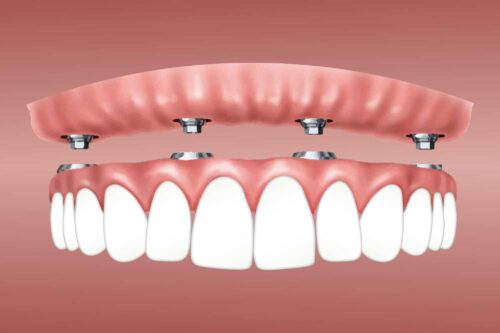What are Dental Implants? Types and Treatment

Dental implants are a revolutionary solution for replacing missing teeth, providing a durable and natural-looking alternative to dentures or bridges. They are designed to mimic the function and appearance of natural teeth, offering a long-term solution for those who have lost teeth due to decay, injury, or other reasons. In this blog, we’ll explore what dental implants are, the different types available, and the typical treatment process.
What Are Dental Implants?
Dental implants are artificial tooth roots made of biocompatible materials, usually titanium, that are surgically placed into the jawbone. Once in place, these implants provide a stable foundation for attaching replacement teeth, such as crowns, bridges, or dentures. The process involves two main components:
- Implant Fixture: This is the metal post that is embedded into the jawbone. It acts as a replacement for the root of the missing tooth.
- Abutment: This is a connector piece that attaches to the implant fixture and holds the replacement tooth (crown) in place.
Types of Dental Implants
There are several types of dental implants, each designed to address specific needs and situations:
- Endosteal Implants: These are the most common type of dental implant. They are placed directly into the jawbone and are suitable for patients with healthy jawbone structure.
- Subperiosteal Implants: These are used for patients who do not have sufficient bone height or do not wish to undergo bone augmentation procedures. The implant is placed under the gum but on or above the jawbone.
- Zygomatic Implants: These are used in cases where there is severe bone loss in the upper jaw. They are anchored into the cheekbone (zygoma) rather than the jawbone.
- Mini Implants: Smaller than traditional implants, mini implants are used to stabilize dentures and are less invasive.
The Dental Implant Treatment Process
The process of getting dental implants generally involves several stages:
- Initial Consultation: During this visit, your dentist will assess your oral health, review your medical history, and determine if you are a good candidate for dental implants. This may include X-rays and other imaging studies.
- Implant Placement: The implant fixture is surgically placed into the jawbone. This procedure is typically done under local anesthesia. After placement, a healing period is required to allow the implant to integrate with the bone (osseointegration).
- Abutment Placement: Once the implant has integrated with the bone, an abutment is attached to the implant. This serves as a connector for the final restoration.
- Crown Placement: After the abutment is secured, a custom-made crown is attached to complete the restoration. The crown is designed to match the color and shape of your natural teeth.
- Follow-Up Care: Regular follow-up visits are necessary to ensure that the implant is functioning properly and to monitor oral health.
Conclusion
Dental implants offer a reliable and aesthetically pleasing solution for missing teeth. With advancements in technology and materials, these implants are now more accessible and effective than ever. If you’re considering dental implants, it’s essential to consult with a dental professional to determine the best approach for your specific needs.
Kapoor Dental Care Center
If you’re exploring options for dental implants or need more information on the procedure, the Kapoor Dental Care Center in Ludhiana is an excellent place to start. Their team of experienced professionals is dedicated to providing high-quality dental care and personalized treatment plans to ensure the best possible outcomes for their patients. For more details or to schedule a consultation, visit their website or contact them directly.
